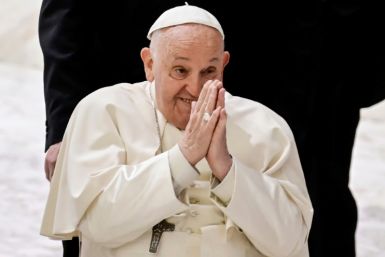Iran May Offer Discounted Oil To Lure Back Old Customers
The Iranian government is considering giving crude price discounts to its former customers as long as Western sanctions against it can be eased in the future, said a senior oil official on Tuesday, in the hopes of seeing a return to their old market share, which had been lost to other Middle Eastern nations.
According to Mohsen Ghamsari, head of trading at the National Iranian Oil Company (NIOC), Tehran had been contacted by a number of their old customers to discuss potential future exports, following positive remarks by new Iranian President Hassam Rouhani regarding his country's nuclear programme during the United Nations general assembly last month.
Ghamsari added that a possible Iranian return could see global oil prices pushed down, emphasising the positives for both Iran and international markets.
"Naturally, a resupply of Iran's crude oil on the world markets will result in oil price cuts," said Ghamsari to the Shana news agency, as cited by Reuters.
"Iran's oil price can easily compete with the neighbouring oil producers... But as oil minister Bijan Zanganeh has said before, if the international circumstances become normal, in order to gain back our traditional markets, if necessary, one of Iran's leverages in this regard is price," he added, according to Platts.
"Given the new circumstances, a large number of traditional buyers of Iranian oil are making the preparations and providing the facilities for raising their oil purchase from Iran," he further said.
Only five countries - China, India, Japan, South Korea and Turkey - are still buying Iranian oil. After the U.S. and E.U. imposed sanctions on Iran for its nuclear programme last year, all E.U. countries have stopped buying oil from the Middle Eastern state, slashing Iran's crude exports from around 2.3 million bpd to 1 million bpd.
Tehran, having opened new rounds of talks with the West on the nuclear issue, hopes to see the sanctions removed in the next few months.
"The Iranians are calling around already saying let's talk ... You have to be careful, of course, but there is no law against talking," told a high-level oil trader, whose company is among many that stopped buying Iran's oil because of sanctions, to Reuters.
Some analysts however warn that Iran's re-entry into the global market may be tough given that supply is already exceeding demand internationally - due to a spike in Saudi output, weaker demand growth in Asia and a decline in demand in Europe.
"It's a different market. It's a market that has a greater degree of supply than the market they, Iranians, exited," said a trader with an oil major, who used to buy Iranian oil.
"Without any constraint in place, OPEC could find itself pumping some 4 million bpd above the forecast call (on its oil). Broken budgets and recriminations between OPEC members are the most obvious fallout," added David Hufton from PVM brokerage.






